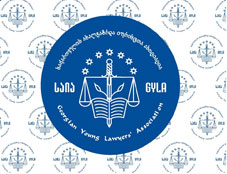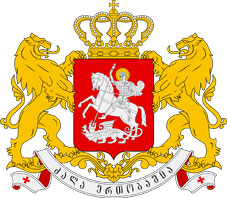
GYLA once again appeals the amendments to the Law on Public Health to the Constitutional Court
By Anastasia Sokhadze
Tuesday, July 21
On May 25th, 2020, the Georgian Young Lawyers' Association filed a lawsuit in the Constitutional Court on behalf of Paata Diasamidze, requesting that the amendments to the Law on Public Health be declared unconstitutional. Georgian Young Lawyers' Association the Parliament of Georgia did not listen to several organizations, including GYLA, not to initiate changes in the Law of Georgia on Public Health. Accordingly, the organization decided to appeal the amendments to the law to the Constitutional Court.
GYLA stated that according to the law, the Parliament of Georgia delegated to the Government of Georgia the power to restrict the right to work and freedom of movement. The document was signed by the President of Georgia on May 23rd. Under the law, the government had the right to impose a number of restrictions, including travel, for 54 days from July 15th onwards.
"The lawsuit was accepted by the Constitutional Court on June 5th, 2020, but by July 15th, 2020, the Constitutional Court was unable to complete the case. On July 14th, 2020, the Parliament of Georgia extended the term of office delegated to the Government until January 1st, 2021. GYLA reiterates that the delegation of powers by the Parliament of Georgia to the Government to restrict labor and freedom of movement is contrary to Articles 14 and 26 of the Constitution of Georgia. Because of this, GYLA has now filed a new lawsuit against the government for the constitutionality of delegating freedom of movement and restriction of the right to work until January 1st, 2021,” reads the statement.
According to Article 14, Paragraph 2 of the Constitution of Georgia, restriction of freedom of movement is allowed ‘only in accordance with the law.’ The first paragraph of Article 26 of the Constitution of Georgia reads that ‘labor rights are protected by organic law.’ Accordingly, the restriction of these rights should be done not by a sub-legal normative act of the government or any of the ministers, but by a law adopted by the parliament.
According to the disputed norms, the Parliament of Georgia delegates authority to the Government of Georgia. Based on the delegated authority, the Government of Georgia or the Ministry designated by the Government shall be authorized to determine quarantine measures. For its part, quarantine measures include different regulations governing freedom of movement, property rights, labor rights, and entrepreneurial rights. Accordingly, the Government of Georgia is authorized to restrict the above-mentioned rights by a subordinate legal act issued by it.
GYLA considers that the entered amendments are unconstitutional with respect to property rights. The government may impose only technical regulations on property rights. It cannot be considered to be a technical regulation, for example such a ban which according to the entered amendments, restricts the hotel owners from renting out rooms. This is a complete ban on the use of property rights and not a technical regulation. A total ban on property rights, such as the closure of hotels and clothing stores or a ban on the resumption of work needs to be legitimized by Parliament. In this particular case, the possibility of taking such drastic measures is transferred entirely in the hands of the government, which violates the right to property.


